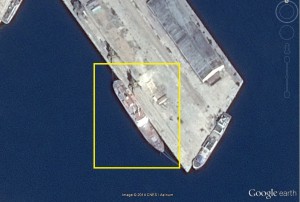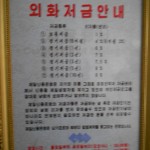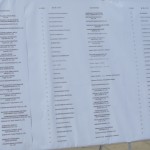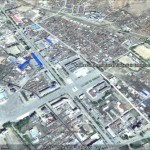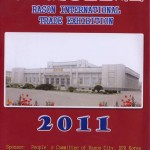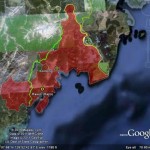Benjamin Katzeff Silberstein
In a fascinating interview by Kyodo News’s Tomotaro Inoue, Ri Jong Ho, a former high-level official in Office 39 of the Korean Worker’s Party, makes several fascinating claims about the supply of fuel to North Korea:
North Korea secures up to 300,000 tons of oil products from Russia each year through Singapore-based dealers, a defector who formerly managed funds for the leadership has told Kyodo News, posing a challenge for the United States as it seeks to isolate Pyongyang.
“North Korea has procured Russia-produced fuel from Singapore brokers and others since the 1990s…It is mostly diesel oil and partly gasoline,” Ri Jong Ho, 59, a former senior official of Office 39 of the Workers’ Party of Korea, said recently in the U.S. capital in his first interview with media under his own name.
Ri also said North Korea relies more on Russia than China for fuel to keep its economy moving, indicating that the U.S. drive for Beijing to restrict oil supplies over Pyongyang’s nuclear and missile programs will only have a limited effect.
“It is a wrong perception that North Korea is completely dependent on China,” he said.
Petroleum products have been shipped to North Korea by tankers leaving Vladivostok and Nakhodka, both in the Russian Far East, with the fuel widely used for cars, ships and trains, helping to support the North’s economy, Ri said.
Other sources familiar with the fuel deals said the petroleum products ending up in North Korea are often purchased by brokers who claim they are destined for China, with the items procured using forged paperwork.
Ri, who defected to South Korea with his family in October 2014, provided details of the activities of Office 39.
The secretive entity, said to have been established by former North Korean leader Kim Jong Il in May 1974, is subject to international sanctions as the United States and other Western countries believe it is engaged in illicit economic activities and the management of slush funds for the leadership.
He said North Korea has been trying to reduce its economic reliance on China, Pyongyang’s most important benefactor, since leader Kim Jong Un issued an order to expand trade with Russia and Southeast Asian countries in August 2014.
The order followed Chinese President Xi Jinping’s visit to South Korea a month earlier, during which he and then South Korean President Park Geun Hye expressed opposition to North Korea’s nuclear weapons development. It was the first time for a Chinese president to visit South Korea before traveling to the North.
Ri said the North Korean leader was “infuriated” by the visit, going so far as to call China an “enemy state,” and began taking measures to boost trade with Russia.
According to Ri, Office 39 has five central groups and systematically acquires foreign currency by sending laborers overseas as well as through gold mining and exports.
“It is an organization that manages the supreme leader’s coffers and the party’s funds to rule the country. It also leads trade activities to earn foreign currency,” Ri said. The office has enormous power as it is directly linked to the leadership and is independent of other government organs, he added.
Ri admitted that Office 39 has evaded U.N. sanctions by asking Chinese and Russian contacts to allow the use of their names for the opening of bank accounts for trade settlement.
The activities of Office 39 require the involvement of hundreds of thousands of people, including those in rural areas who produce items for export. Ri said the bureau is now headed by Chon Il Chun, first vice department director of the party’s Central Committee and a former classmate of Kim Jong Il, the current leader’s father.
A native of Wonsan on North Korea’s east coast, Ri was told to work in Pyongyang by the Central Committee in the mid-1980s. He operated a shipping company at Office 39’s Daehung group and later headed a trade control section in the group between 1998 and 2004.
The Daehung group earns revenue through farm exports and shipping operations, among other means. With exclusive rights to trade “matsutake” mushrooms and snow crabs, it was actively shipping those products to Japan before Tokyo imposed a total ban on trade with the North about 10 years ago.
The four other central groups are Kumgang, which dominates gold export activities, Daesong, involved in the shipment of processed products and intermediate trade overseas, Daesong Bank, in charge of the office’s banking operations, and a group dispatching workers to other countries.
Asked about the possibility that the foreign currency earned by North Korea is being used for its nuclear and missile development programs, Ri only said, “It is up to the supreme leader how to use the funds.”
North Korea receives 500,000 tons of crude oil each year through a pipeline from China, resulting in around 70,000 to 100,000 tons of gasoline and about 100,000 tons of diesel oil after refining, but the oil products are exclusively used by the North Korean army and are not good enough for cars that carry the elite, Ri said.
He also said crude oil purchased from other countries is refined by foreign companies based in China, leading to the importation into North Korea of an additional 50,000 to 100,000 tons of gasoline.
Full article here:
N. Korea procuring Russian fuel via Singapore dealers: defector
Tomotaro Inoue
Kyodo News
2017-07-28

